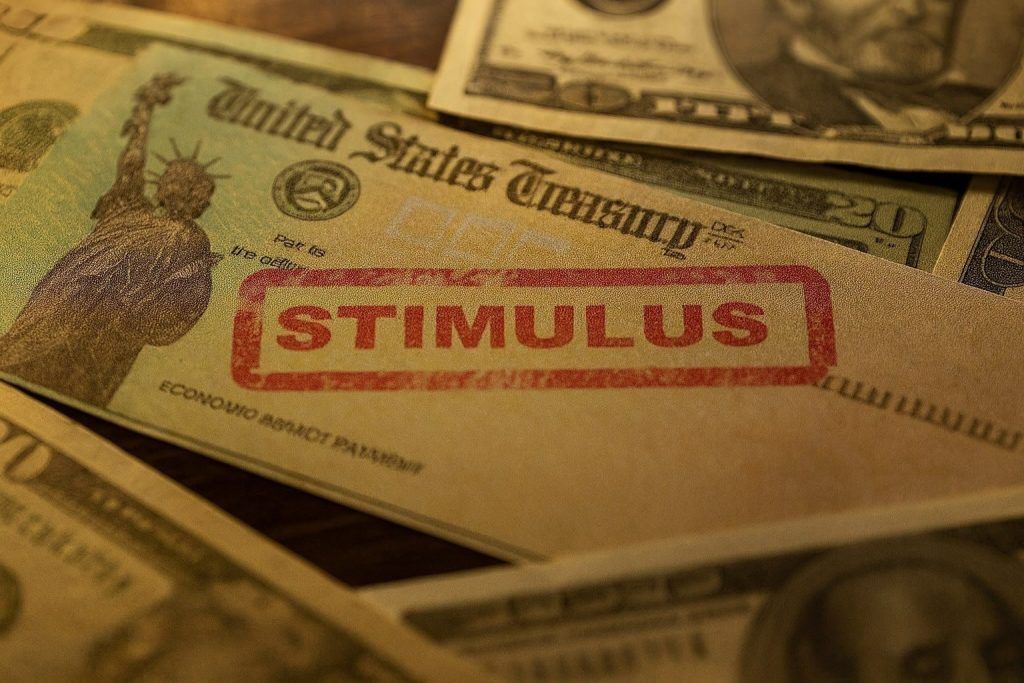On Tuesday, November 25, 2025, the Internal Revenue Service (IRS) sits at the center of several big storylines: a brand‑new federal tax credit for K‑12 scholarships, a major court ruling limiting how IRS data can be shared with immigration authorities, a multimillion‑dollar tax settlement involving Sen. Jim Justice, new guidance for tipped and overtime workers, and a wave of confusing “stimulus” rumors ricocheting around the internet.
Here’s a roundup of what matters — and what’s just noise — in IRS news today.
New federal tax credit for K‑12 scholarship donations
The headline policy move from the IRS today is a new federal tax credit aimed at supporting private K‑12 scholarship programs.
The Treasury Department and IRS released Notice 2025‑70 and an accompanying news release (IR‑2025‑115) requesting public comments on how to implement a new credit created by the One, Big, Beautiful Bill (OBBBA).1
Key facts:
- What the credit is: A nonrefundable federal income tax credit for individuals who make cash contributions to qualifying Scholarship Granting Organizations (SGOs) that fund scholarships for elementary and secondary school students from low‑ and middle‑income families.1
- Start date: Applies to contributions made on or after January 1, 2027.1
- Annual cap: Each taxpayer can claim up to $1,700 in credit per year.1
- State opt‑in: A contribution only qualifies if the state (or D.C.) chooses to participate, certifies which SGOs meet the statutory requirements, and sends those lists to the IRS.1
Treasury and the IRS are specifically asking for comments on:
- How states should annually certify eligible SGOs
- How multi‑state scholarship organizations should be treated
- What reporting and record‑keeping SGOs should be required to maintain1
Comment deadline: Public comments must reference “IRS‑2025‑0466” and be submitted (via Regulations.gov or mail) by December 26, 2025.1
What this means for taxpayers right now
No one can claim this credit yet. But if you already support K‑12 scholarship programs — or run one — this is the moment to:
- Track whether your state elects to participate
- Watch for future proposed regulations that will define who qualifies as an SGO
- Consider submitting comments if you’re in the education, nonprofit or state policy world
Judge blocks IRS from sharing taxpayer addresses with ICE
In a major decision for taxpayer privacy and immigrant communities, a federal district court in Washington, D.C. has temporarily shut down a controversial data‑sharing arrangement between the IRS and Immigration and Customs Enforcement (ICE).
In Center for Taxpayer Rights v. Internal Revenue Service, Judge Colleen Kollar‑Kotelly issued a preliminary injunction on November 21 blocking the IRS from sharing confidential taxpayer address information with ICE under a 2025 “Address‑Sharing Policy.” The ruling was reported today by the Mahomet Daily.2
According to court documents summarized in that report:2
- In April 2025, the IRS and ICE signed a memorandum of understanding allowing ICE to request taxpayer addresses under a narrow exception in Internal Revenue Code § 6103(i)(2), which permits disclosures for federal criminal investigations.
- On August 7, 2025, the IRS disclosed the last known addresses of roughly 47,000 taxpayers to ICE, in response to a request that originally sought tax data on 1.28 million people. ICE claimed that one Assistant Director was “personally and directly engaged” in more than a million criminal investigations — a key legal requirement under the statute.2
- The court found it “legally implausible” that a single official could meet that standard for hundreds of thousands of cases, and held that the IRS likely violated § 6103 as well as the Administrative Procedure Act.2
The ruling also highlights:
- Risk of civil misuse: The judge concluded that taxpayers faced an “imminent risk” that their IRS data could be used for civil immigration enforcement, such as deportations — even though the statute only allows disclosures for criminal investigations.2
- Internal dissent: The article reports that several senior IRS and Treasury officials — including acting commissioners and privacy and risk officers — opposed aspects of the policy and were sidelined or removed from decision‑making.2
For now, the injunction:
- Freezes the Address‑Sharing Policy
- Bars IRS and Treasury from sharing tax return data with DHS or its components for immigration enforcement
- Requires the IRS to give advance notice to the court and plaintiffs before any future transfer of similar data2
The case is still ongoing, but the immediate takeaway is clear: tax return confidentiality remains a legally fortified wall, and the judiciary just pushed back hard on attempts to punch holes in it.
Sen. Jim Justice and wife agree to pay more than $5.1 million in back taxes
On the enforcement front, the IRS is pursuing — and apparently resolving — a high‑profile case involving a sitting U.S. senator.
Local West Virginia outlets WVVA/WDTV and LOOTPRESS report that the IRS has sued Sen. Jim Justice, the former West Virginia governor, and his wife Cathy Justice for more than $5.1 million in unpaid federal income taxes, penalties and interest tied to the 2009 tax year.3
Key details from the filings:3
- The lawsuit, filed Monday in the Southern District of West Virginia, alleges an outstanding balance of $5,164,739.75 plus statutory additions.
- The complaint says the Justices “neglected or refused” to fully pay, despite notice and demand from the IRS.
- Hours later, a joint motion was filed indicating that the couple has agreed to satisfy the full amount, plus ongoing interest and other additions, subject to approval by a federal judge.
LOOTPRESS adds that the settlement resolves personal tax liabilities that “stretch back as far as 2009,” and that Justice’s wider business empire — which includes coal, agriculture and hospitality assets — has faced other financial pressures and tax lien notices in recent years.4
The case underscores two themes of the post‑OBBBA tax environment:
- The IRS is under sustained political pressure to show it is enforcing the law at the top end of the income and wealth distribution.
- High‑net‑worth individuals are seeing more litigation and liens when long‑running tax disputes are not resolved administratively.
For ordinary taxpayers, the direct impact is minimal — but symbolically, it reinforces the message that large unpaid balances don’t just fade away, even for powerful officeholders.
IRS warns holiday shoppers: never pay a tax bill with a gift card
With the holiday season ramping up, the IRS is also in consumer‑protection mode.
In Tax Tip 2025‑69, published today, the agency warns taxpayers not to fall for gift‑card tax scams that tend to spike during November and December.5
Highlights from the alert:5
- Since 2019, the IRS’s phishing mailbox has received over 1,000 gift‑card related phishing emails, many involving criminals impersonating government officials.
- Scammers typically call, text, email or message on social media pretending to be from the IRS or another agency and demand immediate tax payment via popular retail gift cards.
- Once the victim buys cards and shares the numbers and PINs, the money is effectively gone.
The IRS reiterates that it will never:
- Demand immediate payment with gift cards, prepaid debit cards, or wire transfers
- Threaten arrest, deportation or license revocation without giving you a chance to appeal
- Contact you first by text, email or social media about a tax bill
Anyone targeted is urged to:
- Report IRS impersonation scams to the Treasury Inspector General for Tax Administration
- Report general fraud to the Federal Trade Commission
- Forward suspicious emails to phishing@irs.gov5
Combine this warning with today’s online “stimulus” rumors (more on that below), and the message is consistent: if someone tries to rush you into paying the IRS in an unusual way, stop and independently verify on IRS.gov.
New guidance for tipped and overtime workers under “No Tax on Tips”
Beyond headlines, the IRS continues the technically unglamorous work of translating new law into forms and instructions.
On November 21, Treasury and the IRS issued Notice 2025‑69 and news release IR‑2025‑114, explaining how workers can claim new deductions for tips and certain overtime created by OBBBA’s “No Tax on Tips” and overtime provisions.6
Key points in the guidance:6
- For tax years 2025 through 2028, qualifying workers can deduct up to $25,000 per year in qualified tips, with the deduction phasing out for modified AGI above $150,000 (or $300,000 for joint filers).
- The guidance explains how tipped workers can compute their deductible amount using existing information returns like Form W‑2 and Form 4137, even though those forms aren’t being redesigned mid‑tax‑year.
- It also addresses overtime compensation rules and gives examples for restaurant servers, bartenders and self‑employed service workers.
The IRS says it is updating income tax forms and instructions for the 2025 filing season so workers can actually claim these deductions when they file.6
For millions of service‑industry workers, this guidance translates political slogans into something real: line items on a tax return that can lower their tax bill.
Technical corner: international tax rules after the one‑month deferral repeal
For multinational businesses and their advisors, today also brings dense but important IRS news.
Tax practitioner site Current Federal Tax Developments reports that Treasury and the IRS have issued Notice 2025‑72, announcing forthcoming proposed regulations in response to OBBBA’s repeal of Internal Revenue Code § 898(c)(2) and changes to § 987 foreign currency rules.7
From that analysis and the notice:7
- OBBBA eliminated the long‑standing “one‑month deferral” election for certain controlled foreign corporations (CFCs), effective for taxable years beginning after November 30, 2025.
- To deal with the resulting short taxable year many foreign subsidiaries will have, the notice lays out allocation rules for foreign income taxes (so‑called “specified foreign income taxes”) between the short year and the following year, to preserve proper foreign tax credit outcomes.
- On the currency side, the forthcoming regulations would tweak § 987 rules so that pre‑transition foreign currency gain or loss is effectively recognized over 120 months, not strictly over ten taxable years, accommodating short periods created by the CFC year‑end change.
Taxpayers can rely on the notice’s rules in advance of final regulations, but only if they apply them consistently and in full across affected entities and years.7
For global companies, the practical takeaway is that OBBBA’s international provisions are starting to bite. Anyone with specified foreign corporations and § 987 qualified business units will want to coordinate tax and accounting teams early.
Retirement savers: higher 401(k) and IRA limits set for 2026
While not brand‑new today, IRS cost‑of‑living updates for 2026 retirement plan limits are being widely discussed by law firms and financial media and remain highly relevant.
In IR‑2025‑111, the IRS announced that for 2026:8
- The 401(k), 403(b) and most 457 plan elective deferral limit will rise to $24,500 (from $23,500 for 2025).
- The standard catch‑up contribution for those age 50+ increases to $8,000, allowing many older savers to contribute up to $32,500 across salary deferrals plus catch‑up.
- The IRA contribution limit increases to $7,500, and the IRA catch‑up for those 50+ rises to $1,100, reflecting automatic inflation adjustments.
A JD Supra summary notes that the IRS also updated various thresholds for defined benefit plans, SEP plans and SIMPLE plans in Notice 2025‑67, along with a higher Social Security wage base of $184,500 for 2026.9
Separate coverage in Inc. highlights Tax Policy Center estimates that low‑income households might see modest tax savings from the 2026 inflation adjustments to brackets and deductions, while high‑income households benefit more in dollar terms.10
If you have access to a workplace plan, today’s news is a reminder that:
- 2025 is the last year at the lower limits, and
- There’s still time before the new year to adjust contribution rates to take advantage of higher caps in 2026.
IRS data‑matching with Social Security for SSI recipients
Another quiet but significant development: the IRS and Social Security Administration (SSA) are re‑upping a computer matching program that affects people receiving Supplemental Security Income (SSI).
A notice in today’s Federal Register describes an IRS–SSA matching program under the Privacy Act of 1974. The program allows the IRS to share certain tax return information with SSA so the agency can verify eligibility and payment amounts for SSI beneficiaries who are aged, blind or disabled.11
According to the notice:11
- Public comments on the program are due December 26, 2025.
- The matching arrangement is scheduled to take effect January 1, 2026, and run for 18 months.
The goal is to ensure that SSI benefits are accurate and properly means‑tested, but it also highlights how tax data is routinely used — under tightly regulated conditions — far beyond the tax system itself.
Taxpayer Advocacy Panel meets today to discuss IRS customer service
If you’ve ever yelled at your computer while on hold with the IRS, there is, at least in theory, a channel for your frustration.
A separate Federal Register notice confirms that the Taxpayer Advocacy Panel (TAP) Joint Committee is holding an open virtual meeting today, November 25, 2025, at 1:00 p.m. Eastern.12
The TAP is a volunteer body that solicits public comments and suggestions to improve IRS customer service. Today’s agenda includes discussion of “new and continuing issues” for the upcoming TAP year, and members of the public can attend online or by phone with advance registration.12
It’s one of the few formal structures where ordinary taxpayers can influence how the IRS interacts with the public — at least on the edges.
Stimulus checks and “IRS direct deposit relief” rumors: what’s real today?
Alongside legitimate IRS news, social media and low‑quality websites are churning out posts claiming that the IRS has “approved a $2,000 direct deposit for all Americans in November 2025” or is sending out $1,390 “inflation relief” checks through a new federal program.13
Here’s what we can actually say based on official sources and fact‑checking:
No new nationwide stimulus law
- As of November 25, 2025, there is no new federal law authorizing a fourth, nationwide COVID‑style stimulus payment or a general “IRS direct deposit relief payment” for all taxpayers.
- The IRS’s own Newsroom and guidance — which do announce real credits and payments — contain no announcement of a 2025 one‑time $2,000 or $1,390 payment to all qualifying households.14
Fact‑check: viral posts vs. actual policy
A widely circulated fact‑check from FOX 5 DC walks through several of the recurring claims: a November “IRS direct deposit relief payment,” a mysterious $1,390 federal deposit, and so‑called “tariff dividend” checks tied to former President Trump’s proposed trade policy.15
Key points from that reporting:16
- Many posts about specific payment amounts (like $1,390 or $1,702) are recycled from earlier state programs or from prior temporary federal benefits that have already ended.
- Some “guides” link back to unofficial blogs or foreign outlets that do not cite any IRS notice, law or Treasury announcement.
- The “tariff dividend” idea is at this stage a campaign proposal, not a passed law — meaning no such checks exist yet.
At the same time, coverage in outlets such as Hindustan Times and various finance blogs has described a supposed IRS‑run $1,390 inflation relief program beginning in November 2025, aimed at low‑ and middle‑income filers and Social Security recipients.17
Those stories describe:
- Automatic direct deposits based on 2024 tax returns
- Specific income thresholds (e.g., under $75,000 for single filers)
- Expanded use of tools like “Get My Payment”
However, none of those details appear in any IRS news release, Internal Revenue Bulletin, or federal legislation, and independent fact‑checkers have not verified them as an enacted U.S. program.14
In other words: treat them as unconfirmed at best, and likely inaccurate.
How to verify any payment claim
Given the mix of real and fake relief programs, the safest approach is:
- Start at IRS.gov
- Genuine federal programs will be announced on the IRS Newsroom page, usually with an IR‑numbered release and, for ongoing benefits, published guidance or FAQs.14
- Be skeptical of blogs with no citations
- Articles that just announce a dollar amount, list generic “eligibility rules,” and link vaguely to IRS.gov without naming a specific law, notice or revenue procedure are not reliable sources.
- Remember how the IRS contacts you
- The IRS does not reach out by text, social media DM or random phone call to tell you about surprise windfalls — and it never asks you to pay a “processing fee” to receive a government benefit.5
If a claim about a new stimulus or “one‑time IRS payment” sounds appealing but you can’t find it on IRS.gov or in reputable U.S. news outlets, assume it’s wrong until proven otherwise.
What today’s IRS developments mean for you
Putting it all together, here’s how an ordinary taxpayer might prioritize today’s IRS news:
- Parents and donors: Watch the new K‑12 scholarship tax credit taking shape; states and education nonprofits will be heavily involved in the rule‑making process.1
- Service and hourly workers: The No Tax on Tips/overtime guidance could reduce your tax bill beginning with the 2025 return — keep your W‑2s and tip records organized.6
- Retirement savers: Start planning for higher 2026 contribution limits while you still have time to adjust your 2025 and 2026 budgets.8
- Immigrants and mixed‑status families: The ICE data‑sharing injunction limits how your IRS address data can be used in immigration enforcement, at least temporarily, and the case will be important to follow.2
- SSI recipients and low‑income households: The SSA–IRS matching program and scholarship credit rules both affect how means‑tested benefits and education aid interact with the tax system.11
- Everyone: Stay wary of too‑good‑to‑be‑true stimulus headlines and classic IRS impersonation scams, especially around the holidays.5
Tax law rarely changes in ways that are simple, but today’s news makes the landscape a bit clearer: more targeted credits, more enforcement at the top, and a running battle over how far tax data can be repurposed beyond pure tax collection.






